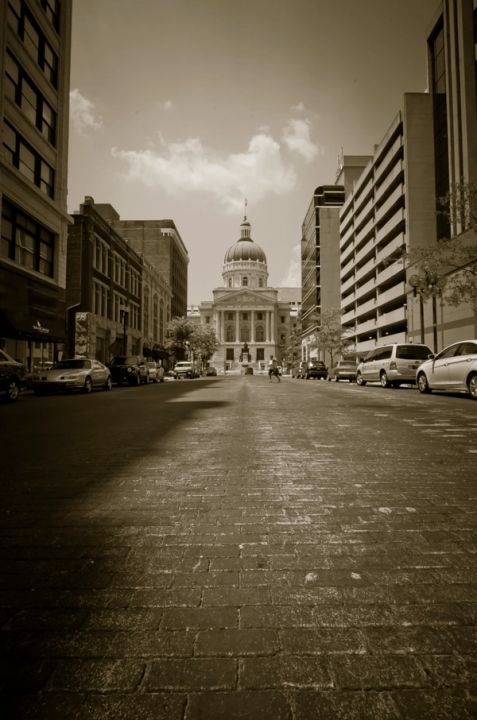Indiana will become the seventh US state to offer legal online sports betting when Rush Street Gaming launches a mobile sportsbook next week. The Indiana Gaming Commission said the operator has “substantially demonstrated” its ability to meet requirements.
It means Indiana will follow in the footsteps of Nevada, New Jersey, Pennsylvania, West Virginia and Rhode Island in offering sports fans the opportunity to wager legally on sports from the comfort of their homes. The new app will launch in time for Week 5 of the new NFL season, which sees the Indianapolis Colts take on the Kansas City Chiefs at Arrowhead Stadium.
Chicago-based RSG became the early market leader in Pennsylvania, where it owns Rivers in Pittsburgh and SugarHouse. It has launched an accompanying online sportsbook for both of them, and their combined revenue leaves RSG as the top operator in the Keystone State’s nascent sports betting market. It gained first-mover advantage in Pennsylvania, and it is now poised to be the first to market in Indiana too.
RSG owns French Lick Casino in the south of the state, near Louisville in Kentucky, and it runs a brick and mortar there. The online betting site will be launched on the French Lick Casino licence and anyone in the state will be able to access it. RSG has used the award-winning sportsbook platform offered by Stockholm-listed Kambi Group to power its foray into the sports wagering sector.
It may be the first to market, but it will soon have plenty of company. IGC executive director Sara Gonso Tait confirmed the commission has received a number of submissions from additional operators that hope begin offering mobile sports wagering in October. “We set very high standards and we are pleased that several companies have been able to quickly work toward their proposed launch dates,” said Tait. We will continue to update the IGC website when operators substantially meet the regulatory requirements necessary for launch authorization.”
New NFL Season Boosts West Virginia
There are now 13 retail sportsbooks in Indiana, but online wagering should see the handle skyrocket. New Jersey and Pennsylvania both enjoyed spiralling handle and revenue figures when online sports betting went live, and West Virginia is now bidding to cash in too. It became one of the first states to launch retail sports betting after PASPA was struck down in 2018. Residents were able to bet online at one site, BetLucky, but it was suspended in March due to a problem with a third-party platform provider, meaning West Virginians were forced to head to retail sportsbooks if they wanted to bet on sport in a secure, legal setting.
Yet online wagering was resurrected last month when FanDuel launched an online sportsbook covering the Mountain State. Lawmakers hope that will send the handle up and allow the state to earn greater revenue. West Virginia lottery director John Myers said at Wednesday’s Lottery Commission meeting that around $16 million has been wagered on sports in the past month, with the start of the new NFL season giving the industry a timely boost.
“With the start of football season, the sports wagering handle went up significantly,” said Myers. “We didn’t see a great big jump with the mobile app but we do think it is going to grow as people learn how to sign up, what the availability is, see the advertisements out there. I think you are seeing the FanDuel and the DraftKings taking on the education role now in their advertising.”
Delays Hit Washington, D.C. Rollout
The rollout of online sports betting in Washington, D.C. is likely to be held up after a court ruled in favour of a resident that claimed the District’s decision to award lottery provider Intralot with a single-source, no-bid contract worth $215 million is illegal. District resident Dylan Carragher has created a sports betting app and he wants a piece of the potentially lucrative market.
He argued that the District’s decision to award Intralot a monopoly is illegal under the city’s self-government Home Rule Act. He said the District Office of the Chief Financial Officer is required to follow D.C. procurement laws to ensure competitive bidding of contracts.
This week a judge sided with Carragher. Nicole Jordan, a D.C. Lottery spokeswoman, said the ruling will impact the proposed January start date for the Lottery’s mobile wagering app in the nation’s capital. “The ruling will serve to delay the modernization of lottery operations at more than 400 retailers across the District,” she said.
Another Blow for Intralot?
The decision to award Intralot the contract on a no-bid basis was always controversial. The Athens-based firm saw revenues decrease in 2018 and its struggles have continued this year. Running sports betting in D.C. could give it a timely boost, but critics have railed against its high hold model. It would maximise revenues for the state, making it appealing on paper for lawmakers. However, it could well lead to unattractive odds for bettors, meaning they would have little motivation to abandon illegal offshore sportsbooks in favour of legal ones.
Carragher’s lawsuit said that the Sports Wagering Procurement Practices Reform Exemption Act, signed into law by D.C. Mayor Bowser in February, “illegally created an exemption for the D.C. Government to award Intralot with the District’s Sports Betting contract, under the D.C. Lottery”. D.C.’s chief financial officer “knew, or should have known, that its efforts to exempt the OCFO from competitively awarding these two contracts flatly violated the Home Rule Act,” according to his solicitor’s statement.
Another hearing is slated for Tuesday. It could be of interest to operators in Montana, where Intralot has also been handed a controversial monopoly of the sports betting market. The company already runs the D.C. and Montana lotteries, so it has a relationship with lawmakers, but sports fans might be disappointed by the lack of big name operators like FanDuel, DraftKings and William Hill, as a lack of competition generally means a poorer experience for consumers.
